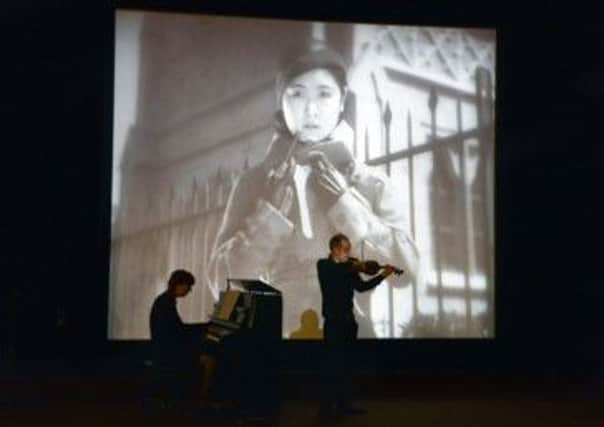Film review: Hippodrome Festival of Silent Cinema, Bo’ness


Hippodrome Festival of Silent Cinema - Various Venues, Bo’ness
* * * * *
There’s no doubting that experiencing real musicians interpreting the screen images live in front of you, you feel far more actively engaged than you would simply as a passive spectator at the latest Hollywood blockbuster.
Advertisement
Hide AdAnd there was no doubting the Bo’ness festival’s ambitions, either: the sheer range of movies on offer – from fairly primitive experiments through to fully finessed features – showed the versatility of the form, and the contrasting musical responses to them surprised and beguiled. The elegant setting certainly helped: the town’s intimate 1911 Hippodrome cinema, decked out with red carpet and bunting for the occasion, provided a witty note of authenticity for these neglected glimpses into the past.
Film critic Mark Kermode, there with his skiffle band the Dodge Brothers, was probably the big draw for Thursday evening, when the foursome joined renowned silent-movie pianist Neil Brand for an unexpectedly subtle improvised soundtrack – fragile and poignant one minute, boisterous the next – to the 1928 Beggars of Life, starring the captivating Louise Brooks. Brand returned for a reliably vivid solo-piano accompaniment to a Saturday-morning family screening of comic shorts, including Buster Keaton’s slapstick The Blacksmith.
So far, so (fairly) traditional. But the graceful, thoroughly modern sounds improvised on piano, accordion, flute and drums by Stephen Horne and Hazel Morrison for the spooky 1927 feature The Ghost Train opened up fresh sonic territory, and matched the film’s bizarre mix of comedy and dread to a tee. Horne struck out off-kilter Salvation Army hymns to illustrate a temperance spinster’s unwitting descent into drunkenness, and unearthly squeals from his accordion anticipated the phantom locomotive’s arrival – all moulded into a fluid, appropriately restless soundscape. It was provocative, but powerfully expressive.
Nothing was improvised for The Last Laugh, a 1924 feature on money and power by FW Murnau (best known for Nosferatu), but it was a rich score by Aljoscha Zimmermann that violinist Sabrina Zimmermann (the composer’s daughter) and pianist Mark Pogolski performed with searing passion, full of Shostakovich-style sarcasm and Weill-like wrong-note piquancy. How the duo kept up their gripping energy throughout the movie’s 80 minutes is something of a mystery.
Edinburgh-based composer Jane Gardner had been commissioned to write a new score for Yasujiro Ozu’s cooly stylish 1933 gangster thriller Dragnet Girl – set to tour Scotland during the spring. While the result – for electric violin, piano and drums – sounded at times a bit too generically oriental for one of Ozu’s most determinedly un-Japanese films, Gardner’s score was full of heartstring-tugging, tender melodies that magically conveyed the movie’s shifting emotional complexities – and she delivered the demanding piano part with delicacy and a mean boogie-woogie left hand. It was an undoubted highlight, and just one of the festival’s many examples of new music providing fresh perspectives on historic screen gems.
Seen on 14.03.14-15.03.14